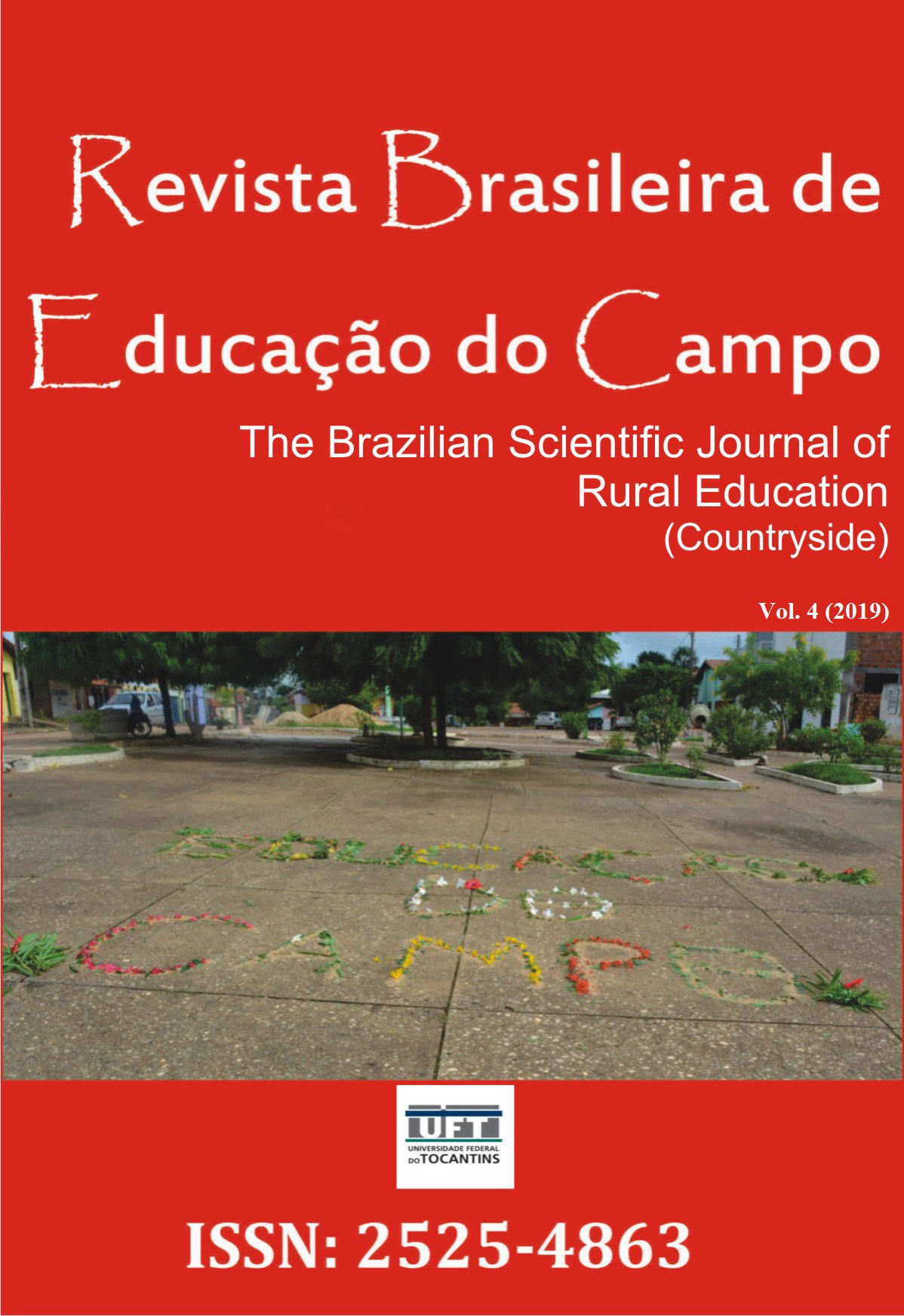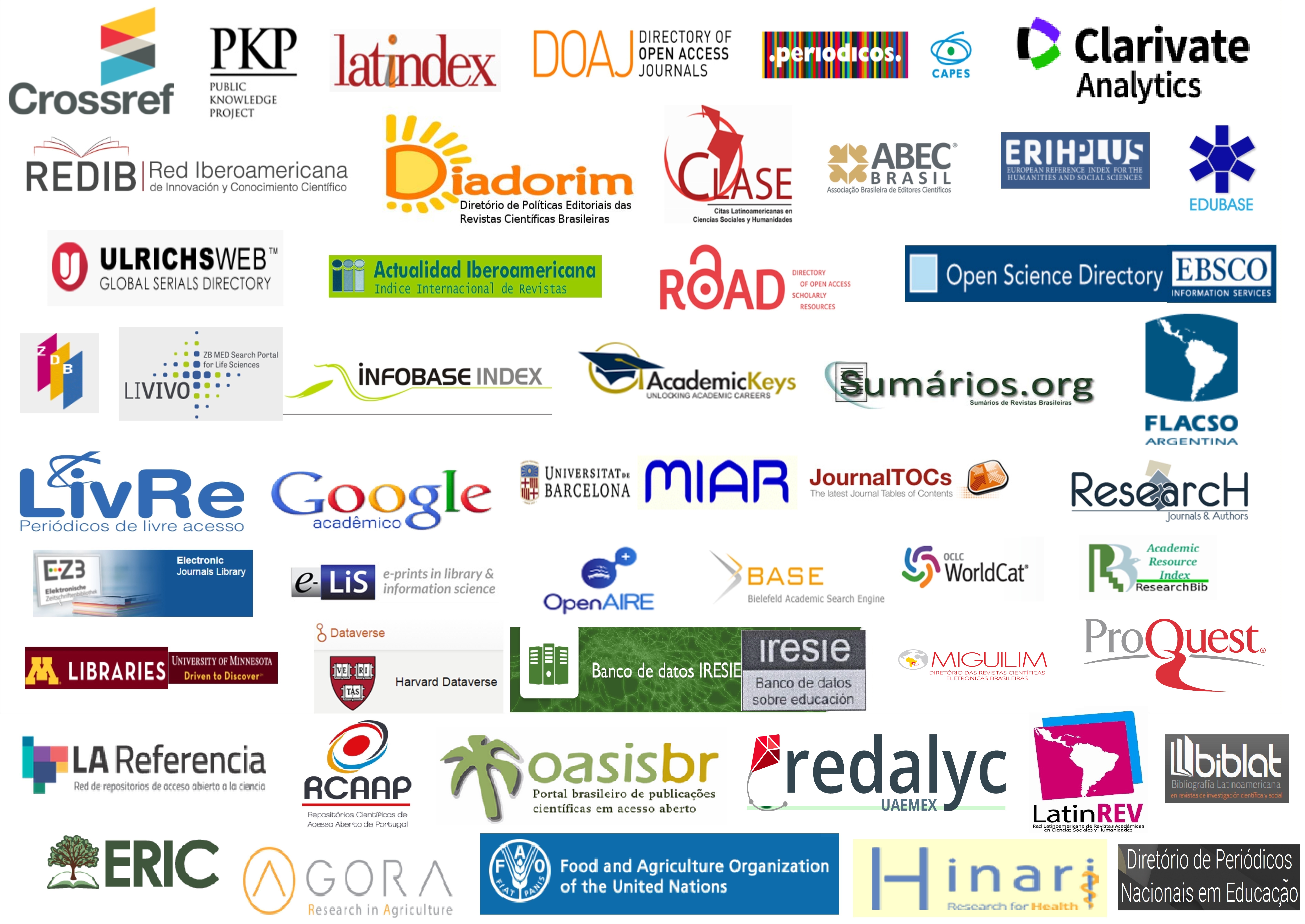Pedagogia da Alternância proposta de formação: Casa Familiar do município de Coronel Vivida - PR
DOI:
https://doi.org/10.20873/uft.rbec.v4e4936Resumo
A pesquisa teve como escopo analisar a formação dos alunos da Casa Familiar Rural (CFR) no município de Coronel Vivida – PR, fundamentada na Pedagogia da Alternância (PA) no ano de 2016, identificando limites e desafios da sua efetivação na inserção do aluno na propriedade rural. Os sujeitos da pesquisa totalizam 08 (oito) alunos e suas respectivas famílias. O estudo foi realizado através da abordagem qualitativa fundamentada no método do materialismo dialético e os elementos de investigação consistiram na pesquisa bibliográfica e documental. O processo de busca e análise possibilitou refletir a proposta da PA desenvolvida na CFR, propiciando constatar potencialidades e limitações desta prática formativa. Nos resultados, destacamos como avanços o número reduzido de alunos por turma, o período integral de estudos e o atendimento personalizado desenvolvido pelos monitores e professores. No que se refere às condições limitadoras, ressaltamos a precária prática na propriedade familiar dos conhecimentos apreendidos, a estrutura física fragilizada e sua adequação a distintas vertentes teóricas que não tomam o trabalho como princípio educativo, produzindo uma prática adaptável à conjuntura social vigorante.
Palavras-chave: Pedagogia da Alternância, Casa Familiar Rural, Formação.
The Pedagogy of Alternation training proposal: Family House of the municipality of Coronel Vivida - PR
ABSTRACT. The research aimed to analyze the scope of training Rural Family House (RFH) in the city of Coronel Vivida-PR based on Pedagogy of Alternation (PA) in the year 2016, identifying limits and challenges of your effectiveness on insertion of the young on the property rural. The subject of research totaling 08 (eight) young people and their families. The study was conducted through a qualitative approach based on the method of dialectical materialism, the elements of the research consisted in bibliographical and documentary research. The process of search and analysis, made possible to reflect the proposal of PA, developed in the RFH, observing potentialities and limitations of this formative practice. In the results, highlight as advances the reduced number of students per class, the full-time study, and the personalized attendance developed by the instructors and teachers. As regards the limiting conditions, the precarious practice in family ownership knowledge acquired, the weakened physical structure, and its adequacy to different theoretical aspects that do not understand work as an educational principle producing a practice that is adaptable to the current social situation.
Keywords: Pedagogy of Alternation, Rural Family House, Formation.
La Pedagogía de la Alternancia propuesta de formación: Casa de la Familia del municipio de Coronel Vivida - PR
RESUMEN. La investigación orientada a analizar el alcance de la capacitación Casa de la Familia Rural (CFR) en el ciudad de Coronel Vivida-PR basado en Pedagogía de la Alternancia (PA) en el año 2016, identificar límites y los desafíos de su eficacia en la inserción de los jóvenes en la propiedad rural. El tema de investigación por un total de 08 (ocho) jóvenes y sus familias. El estudio se realizó a través de un enfoque cualitativo basado en el método del materialismo dialéctico, los elementos de la investigación consistieron en la investigación bibliográfica y documental. El proceso de búsqueda y análisis hizo posible reflejar la propuesta de la PA desarrollada en la CFR, constatando potencialidades y limitaciones de esta práctica formativa. En los resultados, destacamos como avances el número reducido de alumnos por clase, el período integral de estudios, y lo atendimiento personalizado desarrollado por los monitores y profesores. En lo que se refiere a las condiciones limitadoras, la precaria práctica en la propiedad familiar de los conocimientos aprehendidos, la estructura física fragilizada, y su adecuación a distintas vertientes teóricas que no toman el trabajo como principio educativo, produciendo una práctica adaptable a la coyuntura social vigorante.
Palabras clave: Pedagogía de la Alternancia, Casa de la Familia Rural, Formación.
Downloads
Publicado
Como Citar
Edição
Seção
Licença
Proposta de Aviso de Direito Autoral Creative Commons
1. Proposta de Política para Periódicos de Acesso Livre
Autores que publicam nesta revista concordam com os seguintes termos:
a. Autores mantém os direitos autorais e concedem à revista o direito de primeira publicação, com o trabalho simultaneamente licenciado sob a Licença Creative Commons Attribution que permite o compartilhamento do trabalho com reconhecimento da autoria e publicação inicial nesta revista.
b. Autores têm autorização para assumir contratos adicionais separadamente, para distribuição não-exclusiva da versão do trabalho publicada nesta revista (ex.: publicar em repositório institucional ou como capítulo de livro), com reconhecimento de autoria e publicação inicial nesta revista.
c. Autores têm permissão e são estimulados a publicar e distribuir seu trabalho online (ex.: em repositórios institucionais ou na sua página pessoal) a qualquer ponto antes ou durante o processo editorial, já que isso pode gerar alterações produtivas, bem como aumentar o impacto e a citação do trabalho publicado (Veja O Efeito do Acesso Livre).
Proposal for Copyright Notice Creative Commons
1. Policy Proposal to Open Access Journals
Authors who publish with this journal agree to the following terms:
A. Authors retain copyright and grant the journal right of first publication with the work simultaneously licensed under the Creative Commons Attribution License that allows sharing the work with recognition of its initial publication in this journal.
B. Authors are able to take on additional contracts separately, non-exclusive distribution of the version of the paper published in this journal (ex .: publish in institutional repository or as a book), with an acknowledgment of its initial publication in this journal.
C. Authors are permitted and encouraged to post their work online (eg .: in institutional repositories or on their website) at any point before or during the editorial process, as it can lead to productive exchanges, as well as increase the impact and the citation of published work (See the Effect of Open Access).














